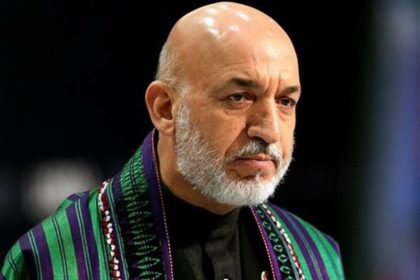RASC News Agency: As the International Day of Democracy approaches, Afghanistanis lament the complete absence of freedom in their country, with women and girls particularly suffering from the denial of even their most fundamental rights. September 15 has been designated by the United Nations as the International Day of Democracy. This year, the UN’s theme focuses on the role of artificial intelligence as a tool for promoting “good governance.”
In a statement to mark this occasion, the United Nations reiterated that September 15 is an opportunity to advocate for and uphold human rights. UN spokesperson Stephane Dujarric noted: “This year’s theme emphasizes artificial intelligence as a tool for good governance. In his message for the day, the Secretary-General stressed that this day serves as a critical moment to bolster support for freedom of expression, civil liberties, and the rule of law, while ensuring accountability within institutions and strengthening the protection of human rights.”
Yet, as the International Day of Democracy is observed globally, the people of Afghanistan remain trapped under the Taliban’s oppressive rule, with their freedoms entirely stripped away. For the past three years, according to United Nations reports, Afghanistani citizens, particularly women and girls, have endured widespread human rights violations. Women and girls have been denied their most basic rights, especially the right to education. UNESCO recently reported that over 1.4 million girls in Afghanistan are currently barred from attending school.
Many Afghanistani girls have voiced their concerns, asserting that Islamic teachings grant individuals the right to shape their own destinies and enjoy personal and social freedoms. Despite this, they say the Taliban has systematically ignored and violated these rights. Hafiza Mohib, a former medical student, shared her personal struggle: “I was a medical student at a university in Kabul, but after the Taliban’s takeover and the closure of schools and universities for girls, I, like many other Afghanistani girls, was forced to abandon my studies. This situation has crushed our hopes and destroyed all of our dreams.”
Fazila Rehani, another student, echoed these sentiments: “The greatest challenge we face is the total lack of freedom. As Afghanistani girls, we are denied the right to education. For three years now, girls beyond the sixth grade have not been allowed to attend school.” The democratic journey in Afghanistan has been fraught with obstacles throughout its history. From 1962 to 1972, the country experienced a brief decade of democracy, during which five prime ministers were changed, and its people enjoyed significant political, social, and economic freedoms. The 1962 constitution, enacted during the reign of King Mohammad Zahir Shah, enshrined democratic values and, for the first time, allowed individuals outside the royal family to hold government positions.






